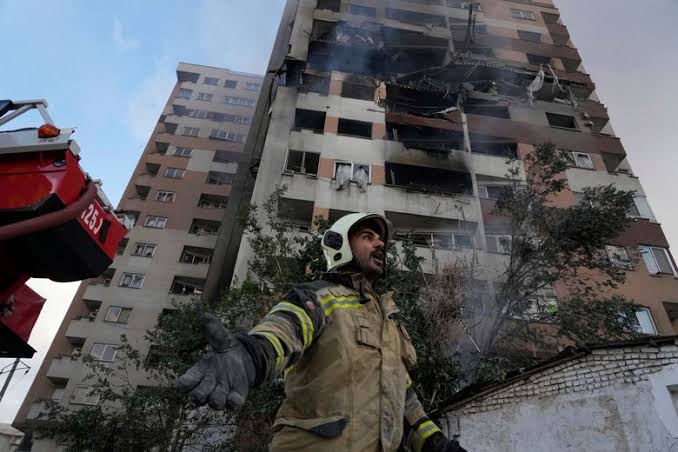National Times Bureau, June 13: In a dramatic escalation that has drawn global concern, Israel launched a massive preemptive air assault on Iran’s nuclear and military infrastructure under “Operation Rising Lion” early June 13. The operation marks one of the largest military actions against the Islamic Republic in over four decades.
The Israeli offensive targeted around 100 high-value sites across Iran, including Natanz, Khondab, and Fordow nuclear enrichment facilities, as well as ballistic missile depots and air defense systems. Nearly 200 Israeli aircraft, drones, and cyber units executed the simultaneous strikes, dealing a significant blow to Tehran’s nuclear ambitions.
Among those killed were some of Iran’s most powerful military figures. The Islamic Revolutionary Guard Corps (IRGC) confirmed the deaths of Commander Maj. Gen. Hossein Salami, Armed Forces Chief of Staff Maj. Gen. Mohammad Bagheri, and IRGC Aerospace Division head Amir Ali Hajizadeh. Renowned nuclear scientists Fereydoun Abbasi-Davani and Mohammad Mehdi Tehranchi also perished. Civilian casualties were reported in Tehran, with over 50 injuries and considerable damage in populated districts.
The International Atomic Energy Agency (IAEA) verified damage at Natanz but confirmed there was no radiation leak. Despite the absence of contamination, nuclear proliferation concerns have surged, with the risk of further instability growing by the hour.
Iran’s Supreme Leader Ayatollah Ali Khamenei condemned the attack, calling it a “bloody act of war,” and vowed “severe punishment.” Within hours, Iran launched over 100 drones toward Israel. All were intercepted before reaching Israeli territory, but the intent signaled a shift toward sustained retaliation.
Israeli Prime Minister Benjamin Netanyahu said the operation was a necessary step to stop Iran from achieving nuclear weapons capability. He argued Iran had amassed enough enriched uranium for nine nuclear bombs and cited repeated failed diplomatic efforts, particularly with the United States.
President Donald Trump distanced the U.S. from the strikes, affirming no American involvement in the operation. However, he emphasized that Iran must return to nuclear talks or “face worse.” The U.N. Security Council convened an emergency session as the situation threatened to spiral into broader regional conflict.
Russia condemned the Israeli strikes as “unprovoked and unacceptable,” while Saudi Arabia, China, the European Union, and Australia called for immediate restraint. Oil prices spiked on global markets amid fears of a full-scale Middle East war.
The conflict arrives at a critical moment in global diplomacy, with the G7 summit shadowed by fears of escalation. Iran is expected to respond not only directly but through proxy militias across Lebanon, Yemen, Iraq, and Syria. Meanwhile, Israel has mobilized reserve forces and raised its national security alert.
As the dust settles on the initial wave of strikes, the world watches nervously for what comes next: further air raids, cyber warfare, or diplomatic interventions. The path forward remains uncertain, but the stakes regional peace, nuclear safety, and global stability could not be higher.
Israel Strikes Iran in ‘Operation Rising Lion’; Iran Retaliates with Drone Barrage as Leaders Killed, Nuclear Sites Hit

